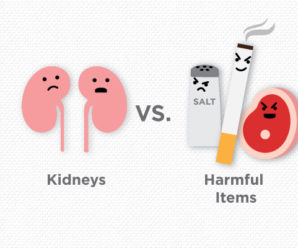
Many Americans spend more than seven hours a day staring at a digital screen. The latest trend in combating the eye strain that can result from this is wearing blue-light glasses.
So, should you run out and buy a pair? Probably not, according to Dr. Jill Dillon, a Marshfield Clinic Health System optometrist, who says there is insufficient research to determine if there are long-term effects from the blue light emanating from mobile devices and computers.
“Blue light from screens has not been proven to cause eye problems. However, blue light, along with ultraviolet (UV) light, from the sun can indeed cause retinal problems such as macular degeneration,” Dillon said.
What is blue light?
Blue light is a low wavelength, high-energy light emitted by the sun and, to a lesser degree, from digital devices, such as laptops and cellphones.
Blue-light filtering glasses have specially created lenses that are said to block or filter out the blue light given off from digital screens and are marketed as eye protection from eye strain.
“It is not truly a question of whether blue-light filtering lenses work, but rather whether they are necessary,” Dillon said. “Many headlines have been written about blue-light filtering glasses and you will often see ads online advertising the need for these glasses. In reality, there are not any good long-term studies out there that show that blue light is actually a problem for the eyes based on the amount that you receive it from screen time.”
A good pair of sunglasses worn while outdoors should provide the protection needed from both blue light and UV light.
“The majority of blue light that you are exposed to comes from the sun itself. I absolutely recommend sunglasses, even on cloudy days, to prevent damage to the retina from both blue light and UV light,” Dillon said.
Pros and cons of blue light
Blue light has positive benefits, including improving alertness, helping with memory and cognitive function, and elevating mood. It also helps regulate the circadian rhythm, the body’s natural wake and sleep cycle.
Blue light emitted from computers screens, however, can have negative side effects. Eye strain is a common complaint among employees working in front of a computer screen for many hours a day.
“Eye strain can make you feel fatigued in general. It can also make your eyes feel tired, sore or dry,” Dillon said.
Common symptoms of digital eye strain include:
- Watery eyes,
- Dry eyes,
- Blurred vision,
- Sensitivity to light,
- Headache,
- Neck and shoulder pain,
- Difficulty concentrating,
- Burning eyes,
- Itchy eyes, and
- A hard time keeping your eyes open.
Warding off eye strain
A simple fix to help ward off digital eye strain is to blink more, Dillon said.
“When we spend a good amount of time on screens, such as computers, smartphones and tablets, we tend not to blink as often,” she said. “Blinking is what helps spread our natural tears over the surface of the eye, the cornea. A good tear film is needed to avoid blurring of the vision and keep the eyes feeling moisturized. At first you may need to make a conscious choice to blink often while you are on screens. But, eventually it will become second nature.”
Dillon suggests practicing the 20/20/20 Rule – every 20 minutes take 20 seconds away from your screen and look at something at least 20 feet away or simply close your eyes.
“When you look at screens up close your eyes tend to lock their focus at that distance. When you then go to look at something farther away your eyes need to relax their focusing and often this is difficult,” Dillon said. “Applying the 20/20/20 Rule will make your eyes feel more relaxed. Again, it will be something you might have to set a timer to do originally, but once you get in the habit it should be second nature.”
If your eyes are still feeling dry, Dillon suggests using over-the-counter lubricating drops or moisturizing drops. “These drops help replace your natural tears and maintain a good tear film. Avoid any drops that say they ‘Get the red out,’” she said.
A visit to an eye doctor once a year to ensure you have the very best prescription for your eyes also may be helpful, Dillon said. To find an eye specialist, go here.







Leave a Reply